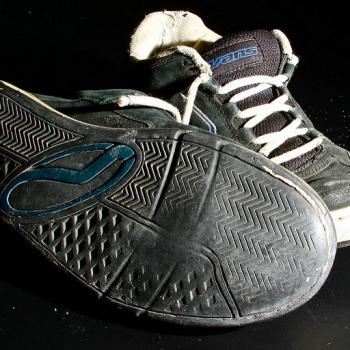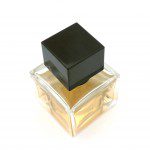 [Note: I wrote a version of this post several years ago following some other natural disaster. After the horrific damage from the December 26 tornadoes in Dallas, I’m already seeing people set up collection centers for used clothing and toiletries. Not a good idea.]
[Note: I wrote a version of this post several years ago following some other natural disaster. After the horrific damage from the December 26 tornadoes in Dallas, I’m already seeing people set up collection centers for used clothing and toiletries. Not a good idea.]
The number one thing is, “Don’t send your used shoes.”
Compassionate people plus tough and tragic situations equals a desire to do something, anything, to relieve suffering. So we ask, “How can I help?”
There’s plenty of suffering to go around. From people who have lost homes and possessions from our recent tornadoes to mass near starvation of Syrian refugees to the average, everyday angst that afflicts most everyone–well, we’re just not going to run out of instances that birth the impulse to help.
Where to start?
Here’s a suggestion: don’t send used shoes (or piles of unwanted clothes or boxes of hotel-sized toiletries). Really. Don’t do this. It makes things worse.
One veteran aid worker, pleading for a monetary response to a recent disaster in the Philippines, wrote about her experiences after the tsunami that hit South Asia in 2004:
“ . . . well-intentioned people cleaned out their closets, sending boxes of ‘any old shoes’ and other clothing to the countries. . . . Heaps of them were left lying on the side of the road. Cattle began picking at them and getting sick. Civil servants had to divert their limited time to eliminating the unwanted clothes. . . . Boxes filled with Santa costumes, 4-inch high heels, and cocktail dresses landed in tsunami-affected areas. In some places, open tubes of Neosporin, Preparation H, and Viagra showed up. The aid community has coined a term for these items that get shipped from people’s closets and medicine cabinets as SWEDOW—Stuff We Don’t Want.”
But we do want to help.
In doing so, we often make things worse. Too many pre-manufactured goods, too many well-intentioned volunteer mission teams, too many shipments of shoes can decimate already seriously wounded economies in nations or communities trying to recover from natural–or human-made–disasters. Too many unexamined motives for rescuing other human beings, too much ignorance about human nature, too much arrogance about our abilities to change the world–and we end up making things much worse.
I can’t fix the people who have suffered so much loss recently. I can’t rebuild their houses or bring back to life their dead or find the lost. I can also make sure I don’t send shoes and the clothes I no longer want.
But I can send money, and support for trained responders who can and do work with great effectiveness in the midst of these emergency situations.
Let’s be helpful, not hurtful, in our responses here. Those emergency responders don’t need a bundle of well-meaning but untrained people showing up right now with trucks full of donated items. They do need funds so those displaced may purchase immediate needs, including shoes and clothing that fit and fresh toiletries of their own choosing.
Let’s offer those stunned by loss the basic human dignity of some choice to get what they need, not our discards and other unwanted items.












